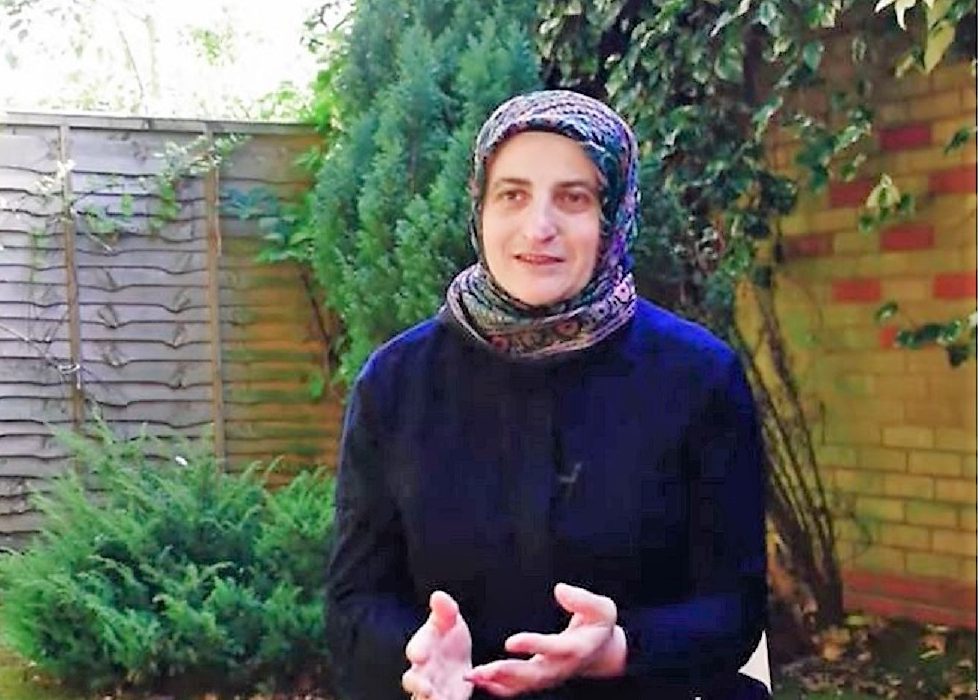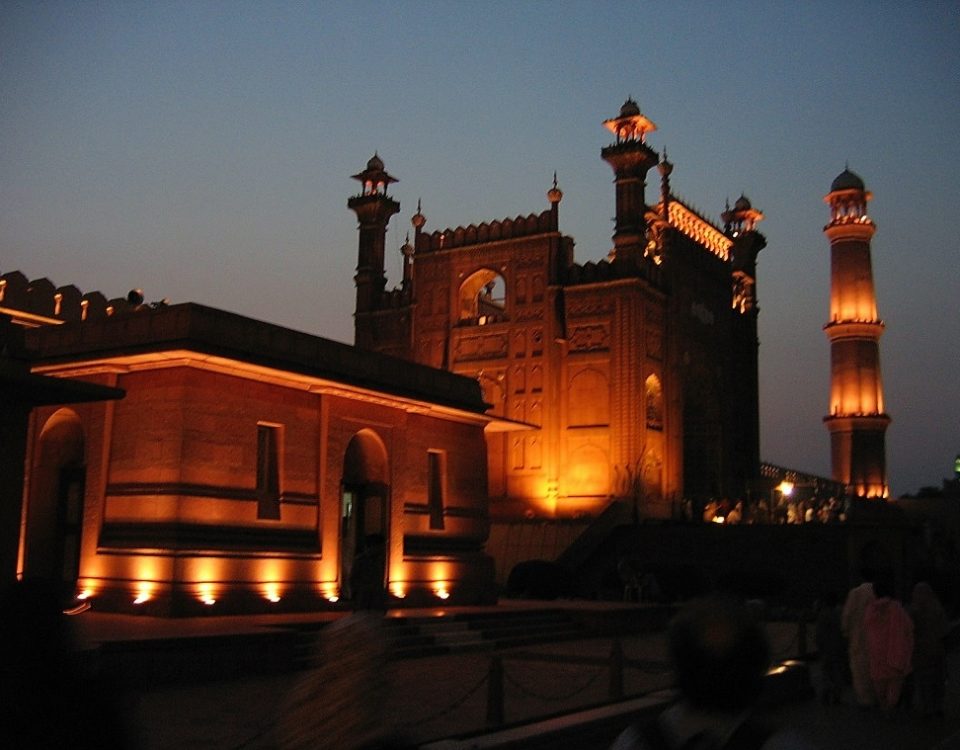I have never wondered about any country as much as Pakistan

Colourful Black Sea trip of Pakistani businessmen
October 25, 2021
Starting was difficult but, once I started, I wanted to write more
October 25, 2021Journalist-writer Semsinur Ozdemir, who made serial interviews with numerous people, answered our questions this time.
Preparing for compiling the interviews she made with PakTurk teachers in her forthcoming book, ‘My Heart Remained in Pakistan’, Ozdemir said she was immensely moved by what she had heard and learnt.
She expressed that after the interviews, she started to feel the curiosity and wish for Pakistan, which she had never felt for any country, and that she wanted to visit there at the first opportunity to observe and experience in its place what she had been told by others.
You can read the answers Ozdemir gave to questions like “Why are you making these interviews? How were you influenced by the teachers? and Have your thoughts about Pakistan changed?” in our interview.
-Could you briefly tell us about yourself?
I am Şemsinur Özdemir. I am a journalist. On the pakturkfile.org website, I interview education volunteers who lived and worked in Pakistan. This also means chronicling the quarter century of the Hizmet Movement in Pakistan. I also consider it as an oral history study. It is very crucial to sustain these memories. The interviewees share episodes from the period they were in Pakistan, the conditions under which they went there right from the start, what they encountered, their first impressions, and their expectations. They narrate their connection with their students, parents and the people of Pakistan. Eventually they had to leave Pakistan, because the schools were forcibly transferred. We talk about how they lead their lives in their host countries and what they do for a living. They also had to leave their profession. These stories make precious memories.
-You interview teachers who lived and worked in Pakistan. What kind of a country did you imagine when Pakistan was first mentioned?
I knew Pakistan from afar based on my knowledge of history, geography and general culture. I had heard the anecdotes shared about the love between the peoples of Turkey and Pakistan. It was a country I admired from afar for its location and historical background, and its proximity to the ancient geography of Turkestan. The names of those cities sounded very familiar. In recent years, especially since the times of late President Özal, Pakistan has been on the Turkish agenda with mutual official and social visits. Pakistan was also the country of the late Prime Minister Benazir Bhutto, a strong female figure in my opinion. Sadly, Pakistan once occupied our agenda mostly with bombings, social turmoil and natural disasters. And frankly speaking, I would never think of living in Pakistan.
-Have your opinions on Pakistan changed after the interviews?
Of course, they have changed. Thanks to my conversations with teacher colleagues who narrated about Pakistan, I could learn about the lives of Pakistani people with their true and humane characteristics. Frankly, people’s real lives reflect little in the news and the popular culture. A former PakTurk teacher said something I will never forget: “When I see Pakistanis on the street, it feels as if I see people from my hometown, my relatives, my uncles and aunts,” she said. Over time, I felt that way too. There are also Pakistani immigrants in the country where I live. Some arrived a long time ago, and some just recently. When I see them, it makes me want to talk to them right away, tell them about myself and say “I love Pakistan!” I feel so close to those people now.
-What sentiments and expressions of the teachers moved you?
The sincerity, trueheartedness and even the tears the teachers shed while they talked about the people of Pakistan and their own lives there moved me. I remember no interview without tears. These may not be reflected in the writing too much and cannot be put into words, but it was moving. We had long discussions and the teachers said nothing negative about Pakistan. They had loved and embraced it so much that everything seemed sweet and is sorely missed. Just like in the proverbial saying, “Bitter agony dissolves and yields to exquisite aftertaste”, it really happened. Actually, I was also impressed by this significant fact: When we observed it from afar, Pakistan seemed a hard country in terms of living conditions compared to their home country, Turkey. Yet they thought, “If there are people living there, we can live too. What makes me different from them? If they endure troubles and tribulations, we will also endure them.” They set out by risking everything, and when they went, they did not suffer disappointments or have high expectations. An atmosphere of mutual affection and love exists with the people of Pakistan. Especially in the last months when the Turkish teachers had to leave forcibly, the public in Pakistan could not do much to keep and protect the teachers there. They were also aware they could do nothing against the assertive power of the state. Despite that, everyone tried to stand beside their fellow teachers to the best of their means. The local people even offered to keep the Turkish teachers with their relatives in distant villages so they would not leave. Some even said, “We will hide you”. This is really impressive. You see when there is mutual humane affection and when bridges between hearts are built, it yields wonderful results, and people become connected to one another with unbreakable bonds.
-You prepared the book “My Heart Remained in Pakistan” by compiling these interviews. How do the people who left their hearts there live nowadays?
Educationists, teachers and friends from different professions who left Pakistan live with excessive disillusionment and heartbreak. They lead very sad and broken lives nowadays. They try to cope with it in the countries they live in. They are not just severed from the people of Pakistan, from that geography, from their students. Similarly, they have been severed from their professions through which they made a living. They spread to different parts of the world, from Africa to Europe, and to the United States. They endeavour to lead their lives by working in different jobs in their host countries. For teachers, that was also a devastating experience. Teaching is a very idealistic profession. It’s not like other jobs. It is not as easy as leaving one job and starting another.
The lives of teachers’ children are of the essence. Although the teachers lived in Pakistan and loved it, they had left their hometowns in Turkey where they had their childhood memories and families. Meanwhile, the memories of the children who were born and raised in Pakistan or who were born elsewhere, grew up in Pakistan, and spent their childhood in Pakistan, had their memories left in Pakistan. Childhood is a person’s homeland. Wherever you spend your childhood, that is your homeland. Those children live with the dream of returning to Pakistan one day. Pakistan is always on their agenda. It is in their drawings, stories, and memories. Pakistani food is still cooked in many homes, perhaps twice a week, and there is a craving for Pakistani flavours. When they first went to Pakistan, the hardest thing the Turkish teachers got used to was hot and spicy dishes. They got used to the flavour and now they constantly miss it. After these interviews, I’m curious about the Pakistani cuisine…
-Is Pakistan calling you? Do you wish to visit Pakistan?
Pakistan is definitely calling me. More than ever before, it calls out with an enthusiasm I’ve never felt for any other country. I would love to visit Pakistan when I have the opportunity. I wish to taste and observe those spicy dishes, not here, but there, as they are made, by walking in the bazaars. Actually, I wish to visit and see each city one after another. I wish to see Peshawar, Khairpur Mirs, Multan, Lahore (the city of Allama Iqbal), and Islamabad. I want to see Islamabad’s fabled numbered streets, its bungalows with big lawns, and its beautiful green nature. I want to travel by imagining the state of my teacher friends living there simultaneously. I want to experience the sights in the photos they send to us, where they are with their students in schools, the chirping of the students, and the voices of the teachers among them.
-What are your future projects?
Chronicling memories from Pakistan is an immensely precious effort. We are planning to publish the interviews we have published so far on the www.pakturkfile.org website as a book with the title “My Heart Remained in Pakistan” soon.





No Comment.